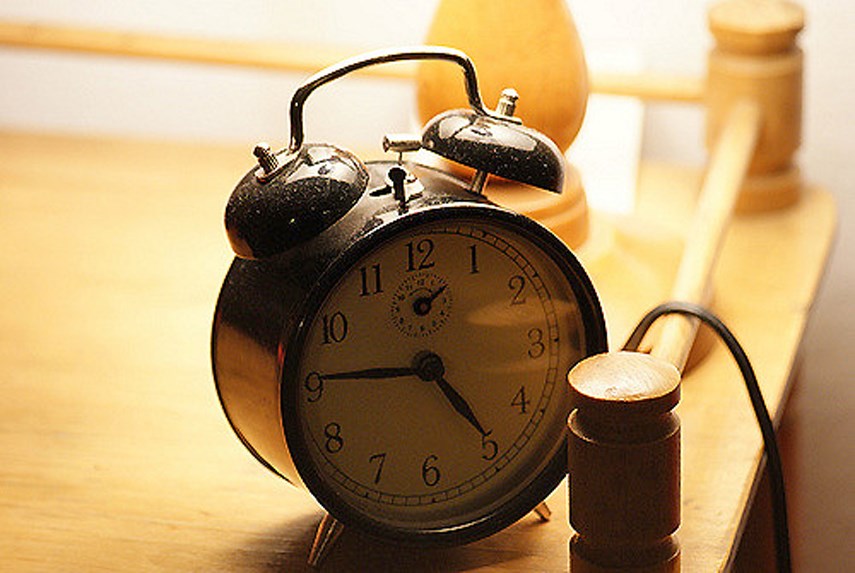Four mornings a week, at 6 a.m., I join an intrepid band for a run through the trails of Stanley Park.
Headlamps beaming, we scrabble through the dark forest as the rest of Vancouver hits the snooze button in a quest for a few more precious minutes of shuteye.
Needless to say, we are precisely attuned to daybreak. For most of the winter, it’s simply dark. But after the winter solstice, the light creeps back into the forest … ever so slowly. Until right about now, we can turn off the headlamps about halfway through the run and enjoy the sunrise. It’s always welcome, even on rainy mornings when it feels as if someone has merely turned up a dimmer switch on the day.
So imagine our chagrin when all that hard-won daylight is instantly done in by the daylight time change, 5 a.m. masquerading as 6 a.m., and we are plunged back into the dark for the full duration of the run. Birds, cheerful heralds of dawn, stick their beaks back under their wings and resume their feathery reveries. Dark silence once again descends.
This year, the time change happens on March 8, the day after my birthday. A year older and plunged back into darkness – both on the same weekend. I can’t do anything about my birthday (although it would be convenient to turn the clock back a year or so – Paul’s Vanishing Youth Saving Time), but I can lobby hard for the province of British Columbia to keep its promise and end this clock farce forever.
Consider: There’s no reason for it. Contrary to myth, it doesn’t save energy. In fact, it may cost energy.
Farmers, the supposed beneficiaries, don’t like it, and lobbied fiercely against it when it was introduced. Saskatchewan is the only province in Canada that doesn’t change its clocks around. Guess why.
It’s dangerous. It’s like jet lag for everybody. According to a study at the University of Alabama, springing forward is so strenuous, it leads to a 10 per cent increase in the risk of heart attack. And the New England Journal of Medicine reports an eight per cent increase in traffic accidents on the Monday after the switch.
Personally, I can estimate a 25 per cent increase in the risk I’ll stumble over a protruding tree root or rock, step in a pile of Stanley Park Mounted Police horse poo or be attacked by a tired, grumpy raccoon annoyed that his bed time has been pushed ahead an hour.
Seriously, nobody likes it – last fall, 93 per cent of the quarter million people who answered an online government poll were in favour of setting the clock to daylight time and leaving it there. Personally, I’m OK waiting until November, turning the clocks back one last time, and getting an hour of extra sleep forever.
At the very least, ending the switch will save the butlers of Buckingham Palace 50 hours of overtime, because that’s how much time it takes to switch the 1,000 clocks scattered around the palace. Saving money on the royals – something we all can support.
Stopping the switch in B.C. is even more popular than ride-sharing, which gives me a moment’s pause, as look how long it took to get that going. Is there an obscure Save Daylight Saving Time lobby lurking somewhere just waiting to blockade the Steam Clock to make its point? I wouldn’t rule it out.
As it is, Premier John Horgan has to decide if he wants to make the change without the rest of Cascadia following suit. He could argue he has enough on his plate right now, what with the demise of democracy and the planet looming just over the horizon (we’re not quite there yet, but we can see the apocalyptic glow).
I would argue in return that it’s time to show some leadership and if he can’t lead us through the challenges of reconciliation with Indigenous people or global warming, he can surely tackle the time change. It’s a tiny little challenge, a challenge with training wheels and safety rails. You can bet that as soon as B.C. drives a stake through the heart of daylight time, everyone else will follow suit.
Including Alberta. As if we care. I take that back. Alberta is an important partner in Confederation.
Seriously, there’s zero downside. They do this all the time in former Soviet republics (mess with the clock and the calendar) and no one even notices.
The time, whatever it is, is right.
Journalist and communications consultant Paul Sullivan has been a North Vancouver resident since the fall of the Berlin Wall and the rise of Madonna. p.sullivan@breakthroughpr.com
What are your thoughts? Send us a letter via email by clicking here or post a comment below.



